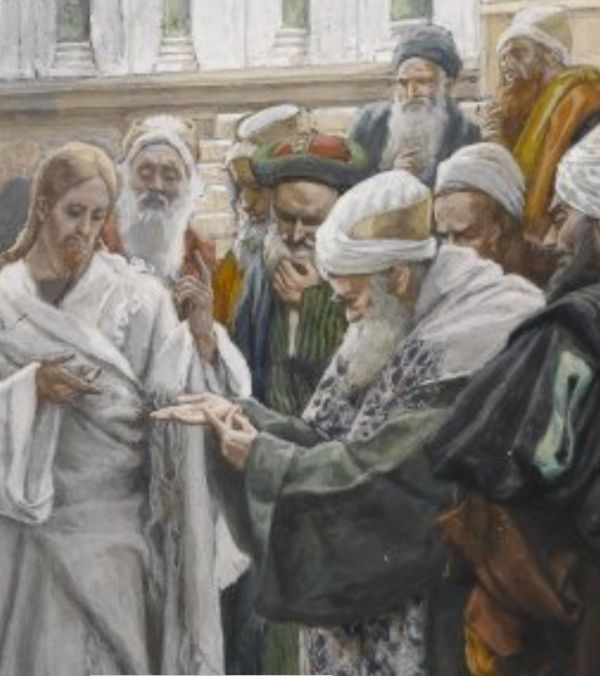In today's Gospel, the evangelist Mark proposes the theme of paying taxes to the emperor of Rome.
The Pharisees and Herodians, in order to mislead Jesus, put a question to him:
"Is it lawful to give tribute to Caesar or not?" (Mk 12:14).
But the Lord answers with that wisdom which comes from above and which is his own:
"What [is] Caesar's, render to Caesar, and what is God's, to God" (Mk 12:17).
In the Franciscan Sources, the Assisian Minim shows the Wisdom of a Poor Man throughout his life.
At the beginning of his conversion he gives his money to a priest so that he can repair the church, realising that in this way he would render to God what was his, living distributive justice.
"The new knight of Christ approaches the church, and seeing it in that miserable condition, feels his heart clench.
He enters with reverential awe and, meeting a poor priest there, with great faith kisses his consecrated hands, offers him the money he carries and manifests to him his intentions.
Amazed at his sudden conversion, the priest almost did not believe what his ears heard and refused to take the money, fearing a hoax.
In fact he had seen him, as it were, the day before making merry among relatives and friends, surpassing all in foolishness.
But Francis insists and pleads with him repeatedly to believe his words, and begs him to take him in to serve the Lord.
And finally the priest allows him to stay with him, although he persists in refusing money, for fear of his relatives.
Then Francis, a true despiser of wealth, throws it over a small window, heedless of it as much as of the dust.
For he longed to possess the wisdom that is better than gold and to obtain the prudence that is more precious than silver' (FF 335).
After so much lasciviousness he wanted to give due weight to things and render to God what is his and to men what is theirs.
And the sources continue to illustrate the dynamics of his living in truth:
"Francis, supremely in love with God, had a great contempt for all earthly things, but above all he detested money.
He began to despise it in a very particular way from the very beginning of his conversion and advised his followers to flee it like the devil himself.
He had suggested to them this expedient, to make the same account of money and dung [...]" (FF 651).
Just as Jesus disconcerts the onlookers with his sharp response, so Francis, following in his footsteps, surprises everyone with a new existence under the banner of truth and justice.
Tuesday, 9th wk. in O.T. (Mk 12, 13-17)












